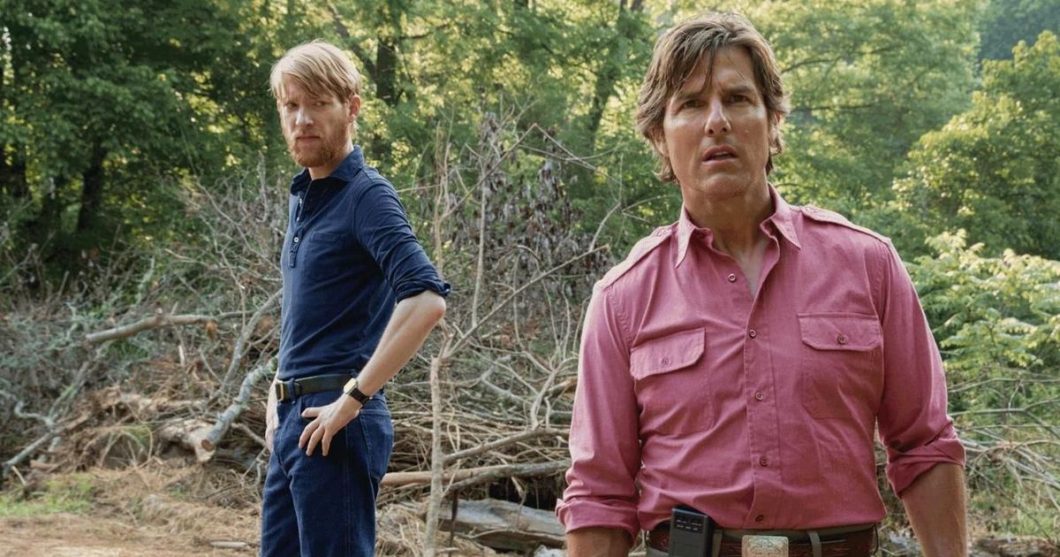There is a time and place for hardline criminal justice, but tough is not enough.
American Made: A "Fun Lie" about Ronald Reagan
The new Tom Cruise movie is really two films in one. The first is a story of reckless hubris on the part of a man who had a good life and abandoned it to become a drug smuggler. The second is a calumny of Ronald Reagan, George H.W. Bush, and the Central Intelligence Agency. Although there are moments of skilled filmmaking in American Made, ultimately, both fail.
Front and center is Barry Seal (1939-1986), a real-life Louisiana airline-pilot-turned-drug smuggler for the Medellin Cartel who got rich in the 1970s and 1980s before becoming a DEA informant. His story comes out of the popular “Wheel of Fortune” cinematic genre of morality tale, featuring a protagonist who, bored or unsuited to middleclass life, has to get his kicks doing unlawful and immoral activity.
Such a person lives a dangerous life, gets rich, indulges his appetites, then suffers a terrible fall. The masterpiece of the genre is of course Martin Scorsese’s Goodfellas (1990), a biopic tracing the rise and fall of mobster Henry Hill. (Many of Scorsese’s films, from 1995’s Casino to 2013’s The Wolf of Wall Street, have a similar arc.) Other examples are Blow (2001), starring Johnny Depp as drug dealer George Jung; Paul Thomas Anderson’s Boogie Nights (1997), about the danger and depravity of the 1970s porn industry; and the underrated War Dogs (2016), about arms dealers, Efraim Diveroli and David Packouz, who receive a U.S. Army contract to supply munitions for the Afghan National Army worth approximately $300 million.
Bored with normal jobs and morally incapable of bourgeois life, the men in these movies ride a rocket of money, drugs, and sex before eventually crash-landing in prison or being killed. (I won’t spoil the ending by saying which of these happens to Barry Seal.) As played by Cruise, Seal is a goofy, aw-shucks boy from Baton Rogue, a successful pilot for the now-defunct TWA who is recruited as a U.S. spy to take photographs of the Sandinistas, at that time mounting an insurgency to take over Nicaragua.
Seal is then hired by the ruthless Colombian drug lords of Medellín. As this movie would have it, the cocaine trade is a product of the United States, which used the proceeds to fight the Sandinistas and other Cuban- and Soviet-backed communist revolutionaries in the Americas. Threatened with legal prosecution when the DEA catches him, Seal then becomes an informant. Oh, and in his spare time Seal, with the support of the CIA, has been training the contras, the ant-Sandinista rebels supported by Ronald Reagan.
American Made is for people who find the fever dreams of Oliver Stone too subtle. The director is Doug Liman, whose father was Arthur Liman, a lawyer who served as chief counsel for the Democratic members of the Senate Iran-Contra hearings in the 1980s. This family connection informed the film, which Liman has called “a fun lie based on a true story.” Entertaining new situations were dreamed up for Seal to participate in, allowing Liman to insouciantly declare that “We’re not making a biopic.” They must have had a madcap time on the set of this movie, for its director described the creative process as: “Wouldn’t it be fun if we did this, or funny if we did that?”
A lot of the fun is had at the expense of Ronald Reagan. The 40th president appears in archival video footage evading questions about the contras (who, by the way, successfully forced the Sandinistas to the negotiating table and to hold elections, without the need for American boots on the ground) as well as sitting by his wife Nancy as she tells kids to say no to drugs—even as the First Couple looks the other way or outright supports Seal’s gun- and drug-running. They’re hypocrites—get it?
A slander based on left-wing conspiracy theories, this notion is presented in a way that is so over the top that sometimes the movie slides into slapstick—a near-wink from the filmmakers indicating awareness of how ridiculous it all is. The realities of Seal’s life are laid out in the 2016 book Smuggler’s End: The Life and Death of Barry Seal, by former Marine and FBI agent Del Hahn. Hahn played a key role in the anti-drug operation of the FBI in Baton Rouge and now works as a private investigator. Interviewed by Vice in 2016, he was asked if the CIA or other federal agencies were complicit in the drug trade. He responded by saying:
The only federal agency Seal ever worked with was the DEA. Seal’s sworn testimony was that he had no knowledge of ever working for the CIA. In debriefings, after his plea bargain, he never told me or anyone else he was a CIA asset or had worked for any agency other than the DEA. Our task force never developed any evidence that the CIA was involved with Seal in drug smuggling. There is not one iota of credible evidence that Seal ever worked for the CIA or assisted them in any operations. And the CIA denied any connection with Seal.
For those who want to dig deeper, the life of Barry Seal can turn into a rabbit hole of conspiracy theories that make Alex Jones look lucid. But the bigger disappointment is that American Made also fails as a cautionary tale. Cruise plays Seal as a Southern fried naïf who joins the CIA more for the slick, gleaming planes they provide than for any personal ambition or conviction about geopolitics. Seal’s goofiness makes it harder for the viewer to identify with him and become invested in the movie.
In Goodfellas, we follow Henry Hill with fascination because the demon in him that made him choose a life of crime is faced head-on and fully revealed. It provides catharsis. We can’t help thrilling to the sight of Hill doing the things that the darker side of ourselves wishes we could get away with (running up and ignoring huge bar tabs, having our sexual and other appetites satisfied whenever we want, spending other people’s money). Also, Ray Liotta played Hill as a man with a moral sense, however shaky, who winced at the violence of the “wise guys” he idolized and eventually turned on them. We sense that, buried deep beneath all the corruption, Hill has a conscience.
American Made lacks the integrity to show Seal as having any selfish or self-destructive ambitions. He’s Forrest Gump caught up in drugs and guns, manipulated by those slick puppet masters in Langley and Washington.



